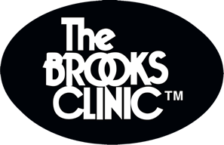Whiplash happens when the muscles in your neck are strained because it was moved rapidly and forcefully. A sudden movement backward and then forward can cause the neck’s muscles and tendons to stretch and tear, causing whiplash.
Whiplash has many symptoms, including neck pain, headaches at the back of the head, dizziness, and blurred vision. These symptoms do not usually develop right away, they can take a day or two to appear – and can last for several days to several weeks or more. However, not everyone who suffers from whiplash will experience all of these symptoms.
How Does Whiplash Happen?
There are a variety of ways a person can get whiplash, including:
Car accident
This is the most common way of developing whiplash. The acceleration of your body moving forward in the vehicle, and then the sudden stop of a crash, causes your neck to go backward and then forward very quickly. It happens so fast that you usually don’t even feel or notice it happening until you later feel the effects of whiplash.
Sports accident
Sports that have high momentum and sudden movements, such as football and boxing, can cause whiplash when someone is punched in the head or tackled. Anything that strains the neck due to sudden movements can increase the risk of whiplash developing.
Injuries
If you suffer from any type of injury that involves your neck moving suddenly and severely back and forth, it can result in whiplash. For example, if you received a blow to the head, it can cause tears to develop in the neck muscles and tendons.
Symptoms of Whiplash
Whiplash symptoms are typically managed through painkillers and rest. However, whiplash should not be taken lightly, because the hidden effect of whiplash is that it can have long-term impacts on your health.
Many times, whiplash does not cause severe symptoms immediately following an injury, and this causes very few people to seek medical attention. However, in most cases of whiplash, immediate treatment is necessary to prevent chronic symptoms and long-term damage to the neck.
Why Should I See a Doctor About My Whiplash?
Immediate treatment can help reduce your recovery period and significantly reduce the pain. In fact, getting treated for whiplash before symptoms appear is the best way to prevent long-term impacts from developing.
When an accident or injury happens, most people do not want to take the time out of their day to see a doctor or visit the emergency room unless it’s absolutely necessary. But because whiplash does not usually cause immediate symptoms, people do not visit the doctor or emergency room solely for this condition. The result is that whiplash develops and goes untreated for a longer time, making treatment and recovery longer and more complicated.
A Skilled Physician Can Help You
If you have experienced a neck injury due to a car accident, sports accident, or another type of injury, whiplash is definitely a possible risk and can affect your long-term health if it goes untreated. The best thing you can do is to get checked by a doctor as soon as possible after the trauma occurs.
If you see a doctor and you do not have whiplash, the most you will lose is an hour or two of your time. But if you do have whiplash, seeing a doctor to diagnose and treat it early on will significantly help reduce pain and long-term symptoms from developing.
The board-certified physicians at The Brooks Clinic treat all kinds of injuries, and they specialize in car accident injuries. If you were injured in a car accident or in another way, schedule an appointment today by calling (405) 400-0877 or fill out our easy-to-use online form. We look forward to hearing from you.




